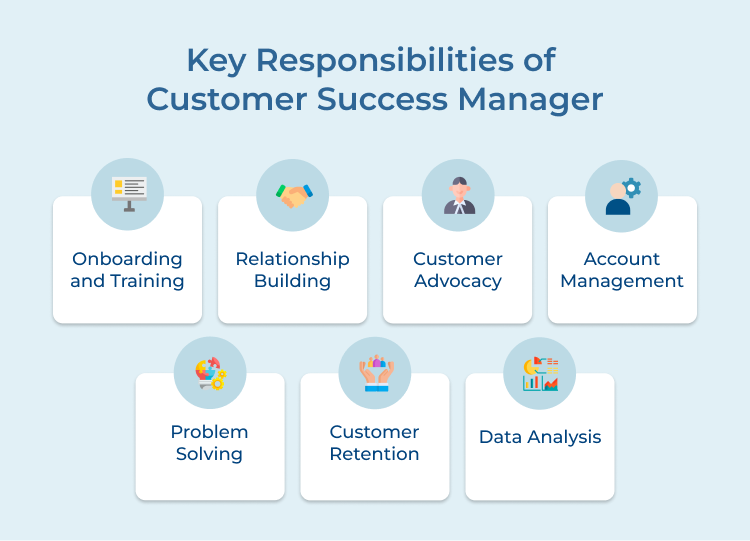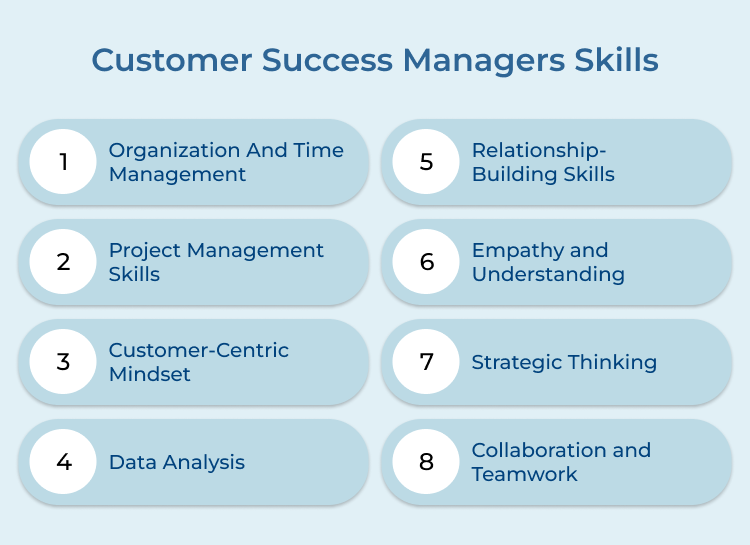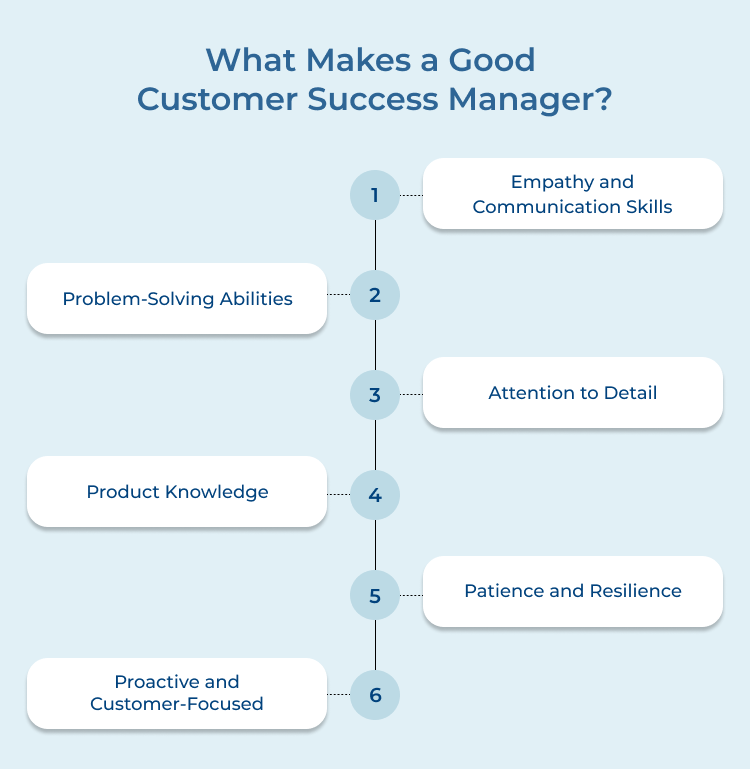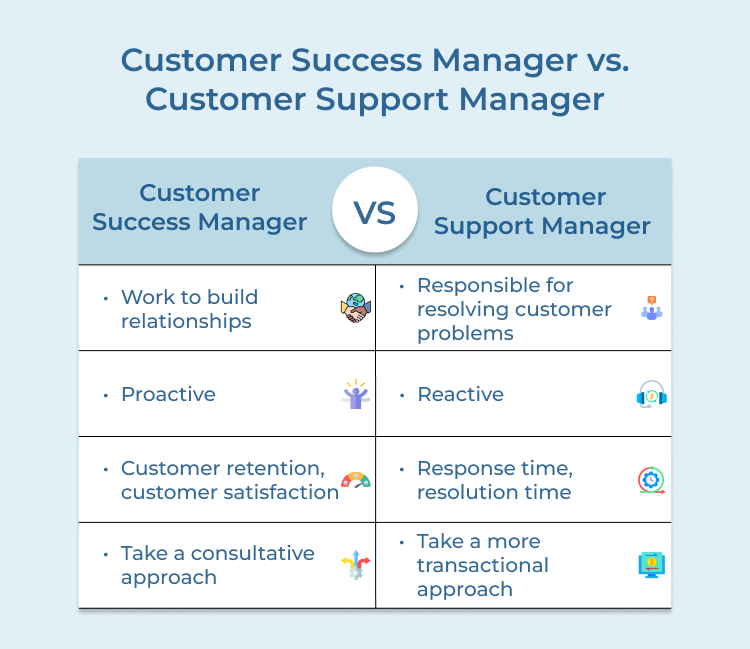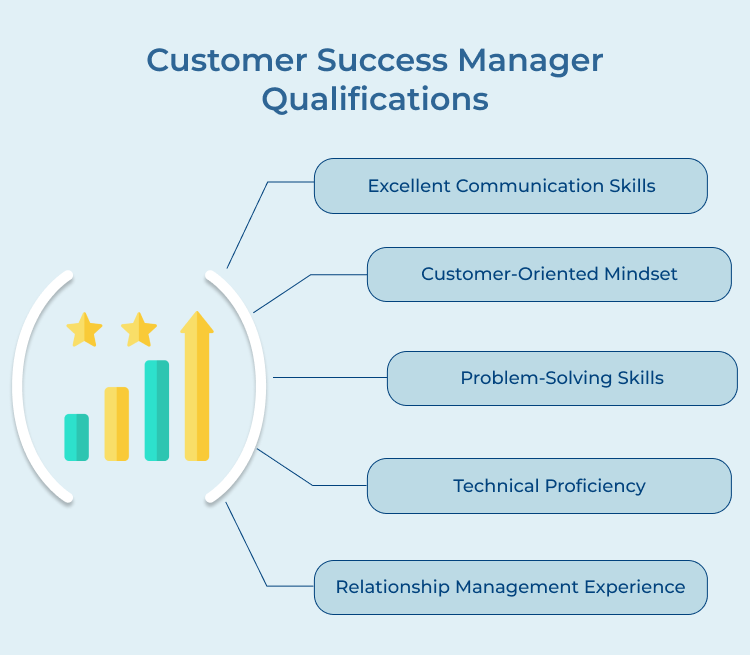Here are the key differences between Customer Success Managers and Customer Support Managers:
Focus
Customer Success Managers ensure customers achieve their desired outcomes by using the product or service effectively. They work proactively to build client relationships, understand their needs and help them succeed.
Customer Support Managers focus on providing reactive support to customers who encounter issues or have questions. They are responsible for resolving customer problems and addressing their concerns promptly.
Proactivity
Customer Success Managers are proactive in identifying and addressing potential issues before they impact the customer’s experience. They work to prevent customer churn and promote customer loyalty by addressing customer needs.
Customer Support Managers are reactive, responding to customer issues as they arise. They are focused on troubleshooting and resolving problems rather than preventing them from occurring.
Metrics
Customer Success Managers measure success based on KPIs like customer retention, customer satisfaction and customer lifetime value. They are focused on ensuring customers are happy, engaged and successful.
Customer Support Managers often measure success based on metrics like response time, resolution time, and customer satisfaction scores. They are focused on quickly and efficiently resolving customer issues.
Approach
Customer Success Managers follow a consultative approach, working collaboratively with customers to understand their goals and provide personalized solutions. They are strategic partners who help customers achieve their desired outcomes.
Customer Support Managers take a transactional approach, focusing on resolving customer issues and providing technical assistance. They are problem-solvers who address immediate concerns and ensure customer satisfaction.
Collaboration
Customer Success Managers work closely with sales, marketing, product development and other departments to ensure a seamless customer experience. They collaborate cross-functionally to drive customer success and retention.
Customer Support Managers primarily collaborate with the customer support team and may work closely with product development or engineering teams to address technical issues. Their focus is on resolving customer problems efficiently.
Customer Success Manager Qualifications
Customer Success Managers should be eligible to build and maintain strong customer relationships, providing support/guidance and helping customers achieve their desired outcomes. To excel in this role, there are certain qualifications that are necessary.

